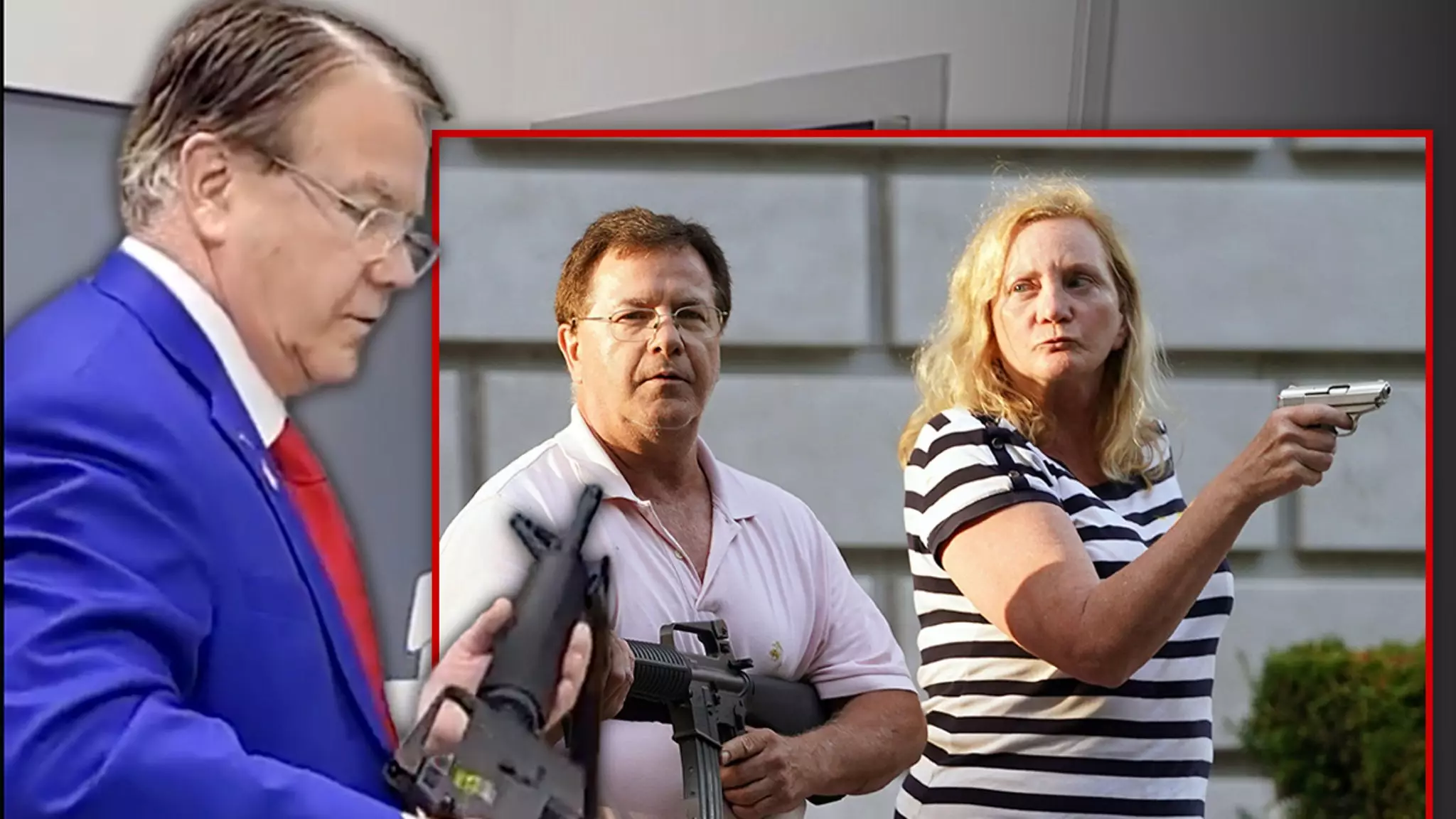The saga of Mark and Patricia McCloskey demonstrates how polarization and political backing can influence personal rights and public perception. Once vilified for standing guard on their lawn with firearms during the 2020 protests, they have fought through legal battles, social backlash, and public scrutiny to reclaim their symbol of resistance—their semi-automatic rifles. Their story underscores the complexities surrounding individual gun rights in a nation deeply divided over issues of justice, activism, and constitutional freedoms.
Despite facing felony charges for unlawful use of a weapon—charges that could have significantly impacted their lives—the McCloskeys navigated a legal maze characterized by appeals and pardons. Their ability to have their misdemeanor convictions expunged and their weapons returned reveals how political alliances and legal maneuvering can shape the outcomes of cases that are inherently about more than just firearms. Their supporters, including prominent conservative figures and politicians, frame their struggle as a battle against what they see as an overreach by progressive prosecutors and social activists aiming to diminish Second Amendment rights.
The narrative of resilience is further amplified by Mark McCloskey’s public declaration—that despite the ongoing legal challenges, they have ultimately regained their property rights. His comments about never giving up and the alleged support from Donald Trump feed into a broader cultural debate about perseverance, patriotism, and the limits of legal authority when it clashes with ideological convictions. It raises questions about whether justice is served equitably or if it is often subject to political influence.
Legal Battles and the Broader Cultural Divide
The McCloskeys’ legal journey reflects the deeply entrenched divides prevalent in contemporary American society. Their initial confrontation was a microcosm of larger clashes—between law enforcement and civil rights activists, between conservative and liberal political ideologies, and between individual liberties and public safety concerns. The case was a flashpoint that ignited debates about gun rights, personal safety, and the boundaries of protest.
Their subsequent legal proceedings, including pleas and pardons, expose the power dynamics at play, where legal outcomes are often swayed by political allegiances rather than impartial justice. The decision by the former governor to pardon the McCloskeys and expedite the expungement process — with the aim of restoring their rights swiftly—highlights how legal processes are sometimes intertwined with partisan interests. This raises important questions about the true independence of the judiciary and whether justice is truly blind or influenced by political optics.
Furthermore, their story prompts reflection on the symbolism of firearms in American culture. It is not merely about personal protection but also about identity, resistance, and the message conveyed by those who choose to publicly display weapons in contentious moments. The McCloskeys’ unwavering stance serves as a reminder of the enduring power of gun culture in shaping political narratives and individual identities—regardless of legal verdicts or social perceptions.
In view of these elements, one cannot ignore the broader implications of their experience. The ongoing debate about gun rights, justice, and political influence continues to define—and divide—American society. The McCloskeys’ journey underscores how resilience and political backing can sometimes triumph over legal adversity, leaving us to question what justice truly means in a polarized nation.

Leave a Reply